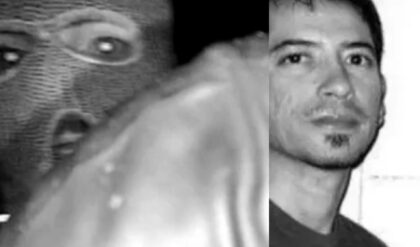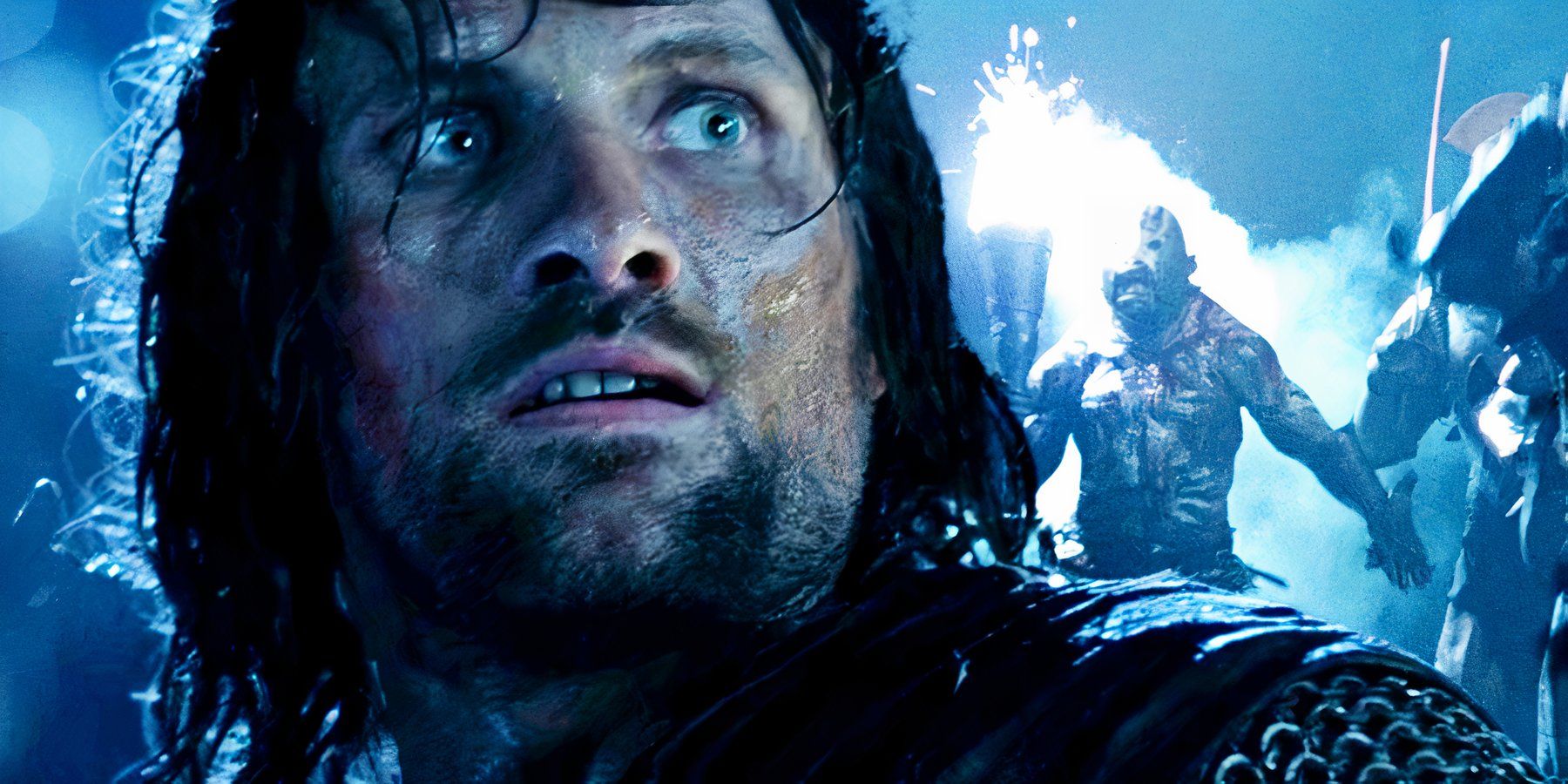
The extended edition of The Lord of the Rings: The Return of the King includes a scene in which Gandalf, Aragorn, and a host of others approach the Black Gate to speak to the Dark Lord’s emissary. Known in Tolkien’s works as the Mouth of Sauron, this messenger was as nasty as they come, and he had a lot of horrible things to say to Aragorn before the Battle of the Morannon. Jackson’s version of events led the rightful king of Gondor to dramatically behead the Mouth of Sauron—a war crime entirely below The Lord of the Rings‘ Aragorn.
Aragorn Killing The Mouth Of Sauron Didn’t Make Sense
Killing An Emissary During A Parley Is A Pretty Big Deal
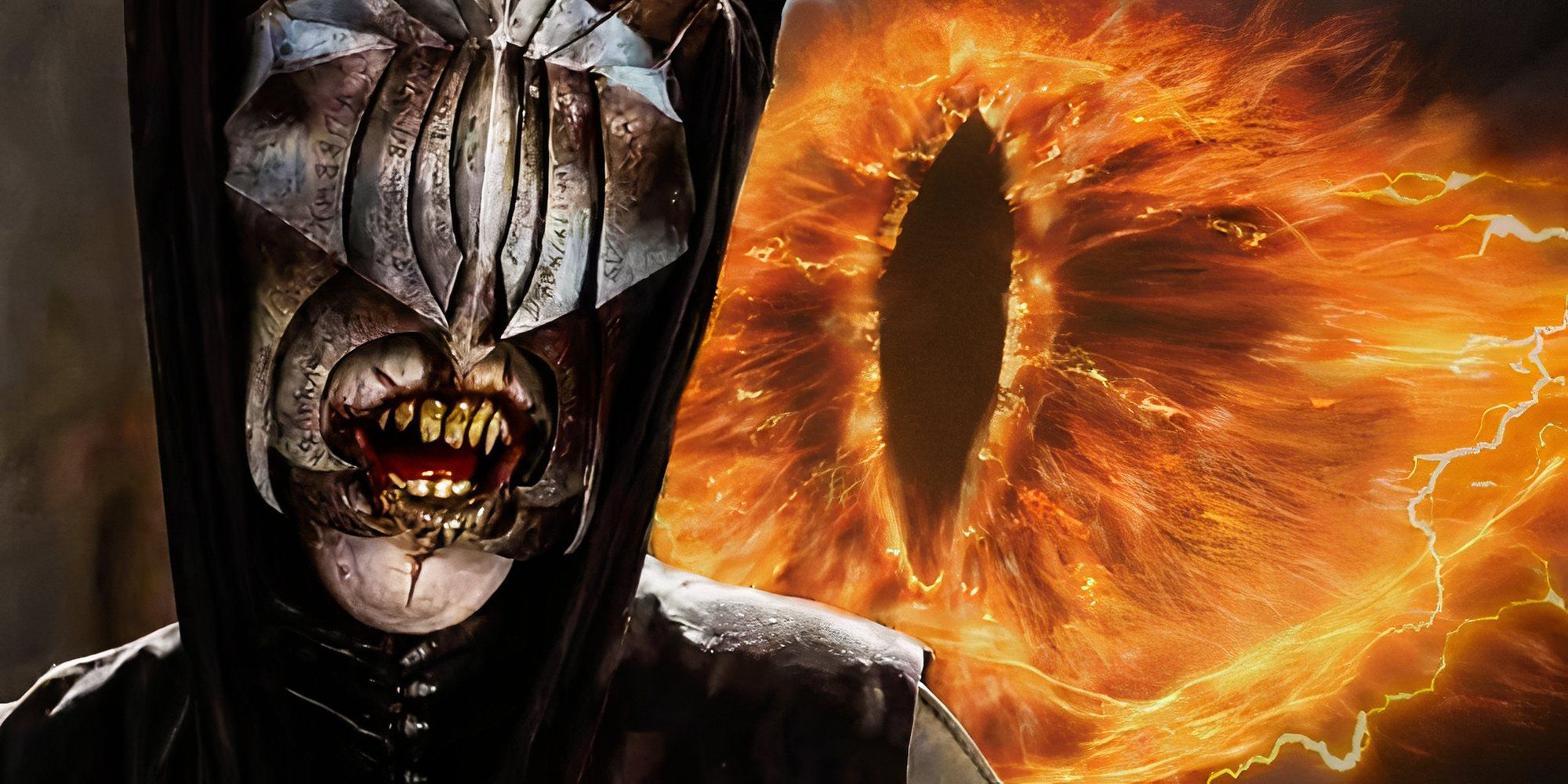
I was initially excited to see the Mouth of Sauron in the Lord of the Rings extended edition, but I was wholly surprised and a little outraged about how this scene ended. While the Mouth of Sauron really did meet with Aragorn and the rest in Tolkien’s The Lord of the Rings: The Return of the King, he left the interaction with his head intact. As an emissary, this is precisely as it should have been. Sure, the Mouth of Sauron said some horrible lies and tried to mislead his enemy into believing that Frodo was dead. However, it would be a great crime to kill a messenger, no matter how evil.
Aragorn, eager to prove that he wasn’t like his faulty ancestors, would never have committed such a war crime. The only benefit to adding this to an otherwise canon scene would be drama. Aragorn had missed most of the Battle of Pelennor Fields in Return of the King, so Jackson might have been trying to give Viggo Mortensen a moment of glory to make up for it. However, I feel that Aragorn essentially murdering an emissary during a parley wasn’t the right way to go about this.
Aragorn’s Character Was Already Heavily Changed For Peter Jackson’s LOTR
Aragorn Didn’t Need An Even Bigger Change From Canon
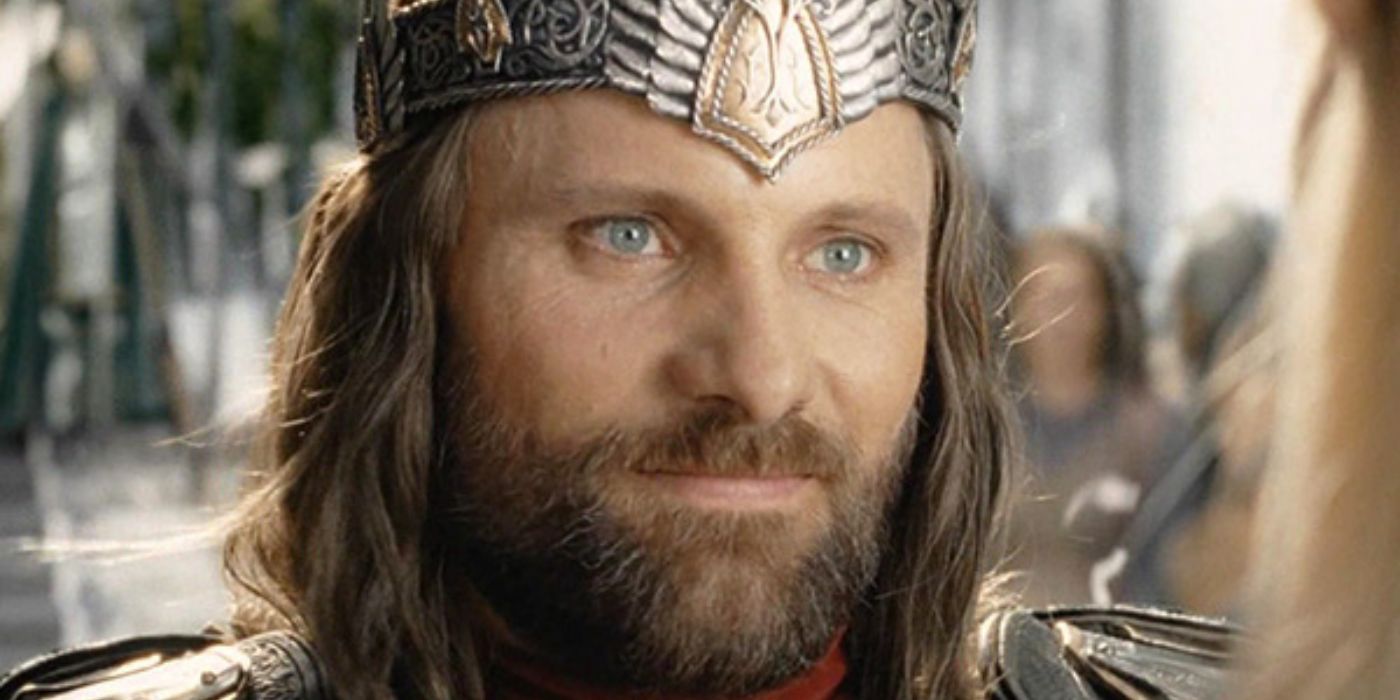
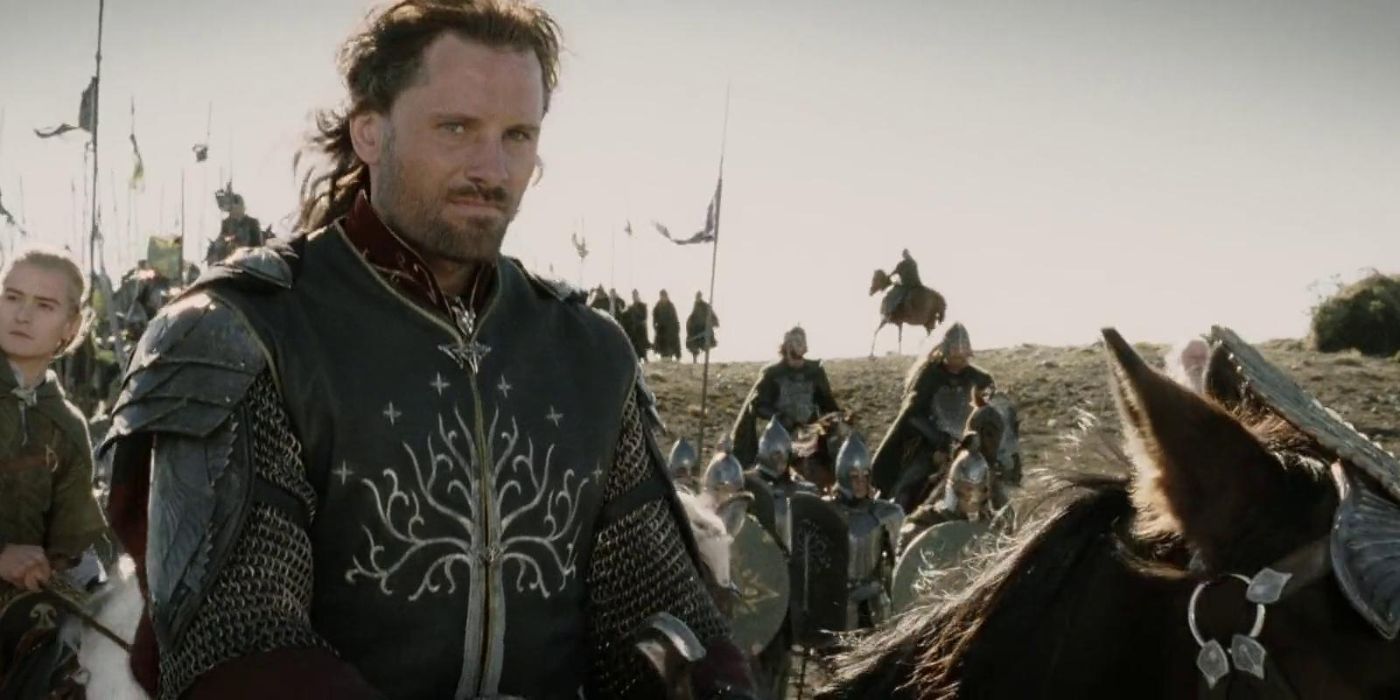
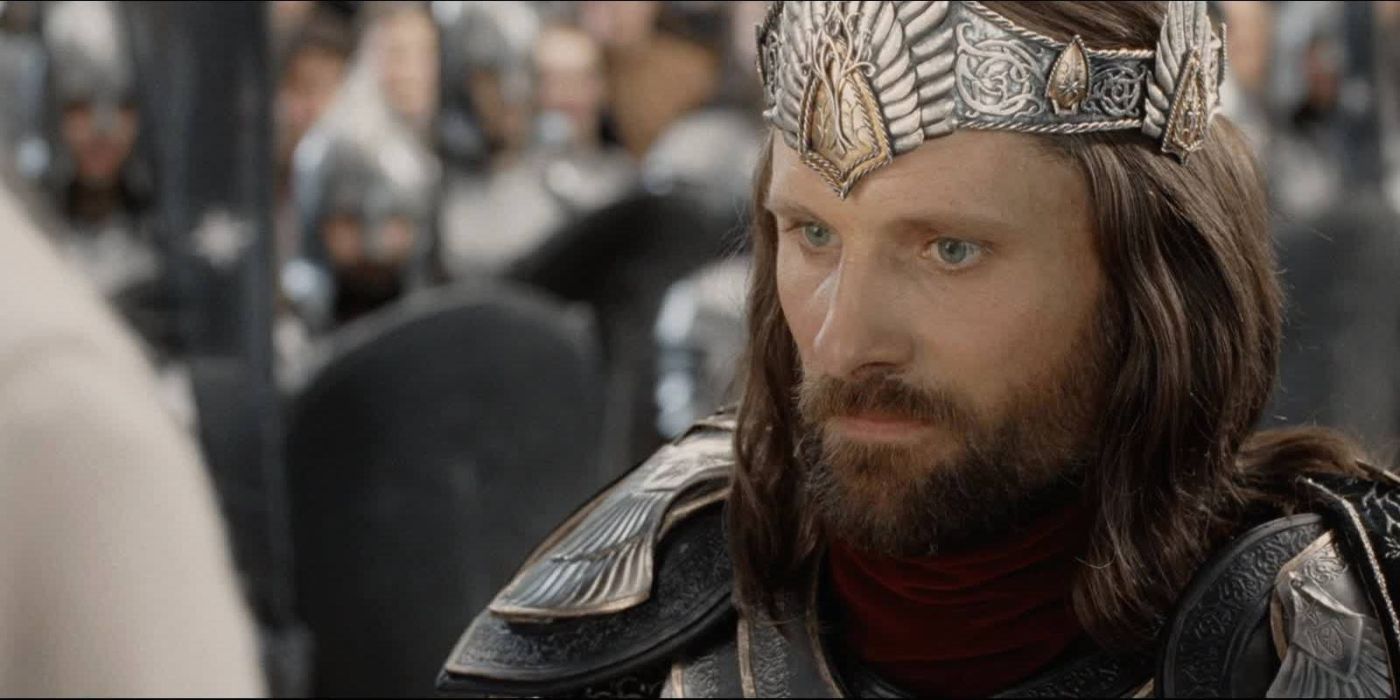
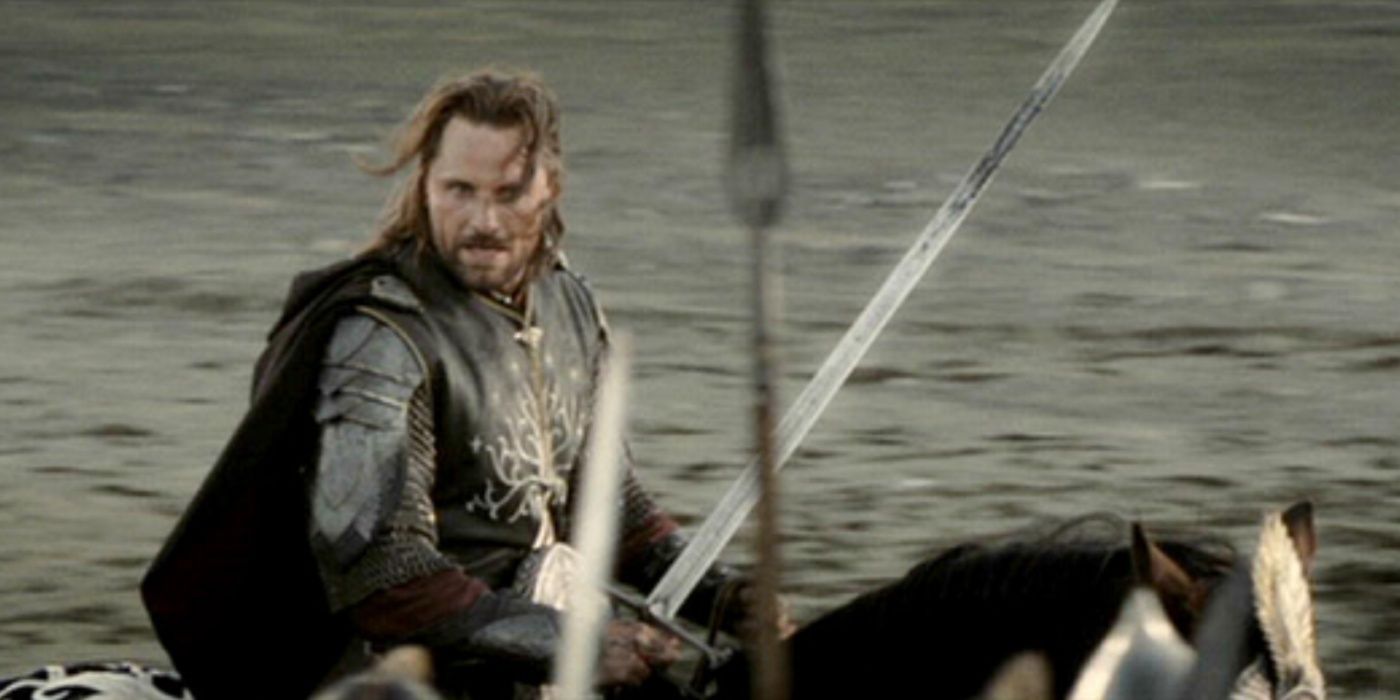
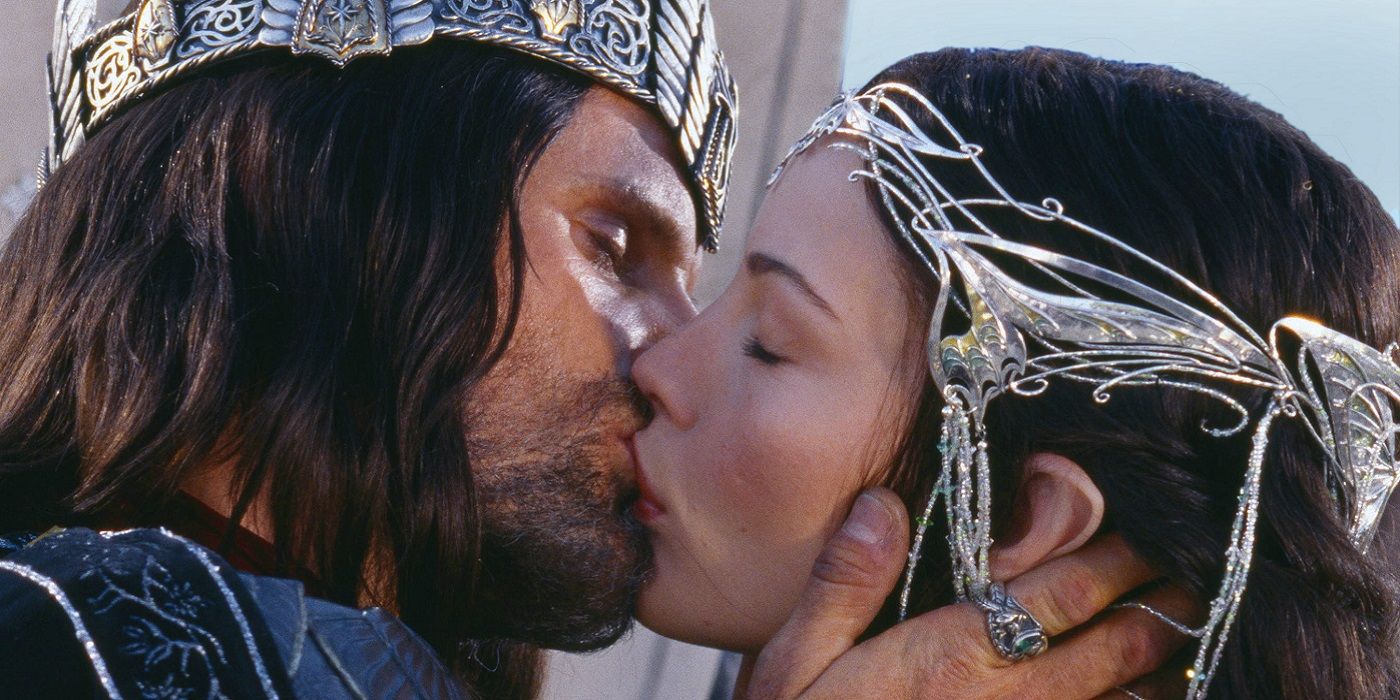





I’m thankful that Jackson ultiamtely cut the Mouth of Sauron scene, especially since Aragorn had already gone through a lot of changes for the adaptation. In the Lord of the Rings movies, Mortensen’s character was unsure of himself, fearing that he would repeat the mistakes of his ancestors and lead Gondor to doom. It took fighting against the evil that had corrupted Isildur for him to finally accept his destiny as king. In Tolkien’s books, on the other hand, Aragorn knew from the start that he was meant to be king and felt only that he needed to first help in the fight against Sauron to earn his place.
Peter Jackson’s version of the character allowed for a more dramatic arc and made Aragorn a loveable underdog.
Aragorn being the reluctant hero in Jackson’s Lord of the Rings was a pretty significant change, though it has been widely accepted. This version of the character allowed for a more dramatic arc and made Aragorn a loveable underdog. This makes Jackson’s decision to make his reimagining of Gondor’s king behead an emissary all the more strange. It doesn’t fit with either version of the character, but it’s wildly incongruent with the somewhat unsure hero that Jackson included in his films.
I’m Bummed Return Of The King Cut The Mouth Of Sauron Entirely
I Wish Return Of The King’s Theatrical Cut Had A Book-Faithful Mouth Of Sauron Scene
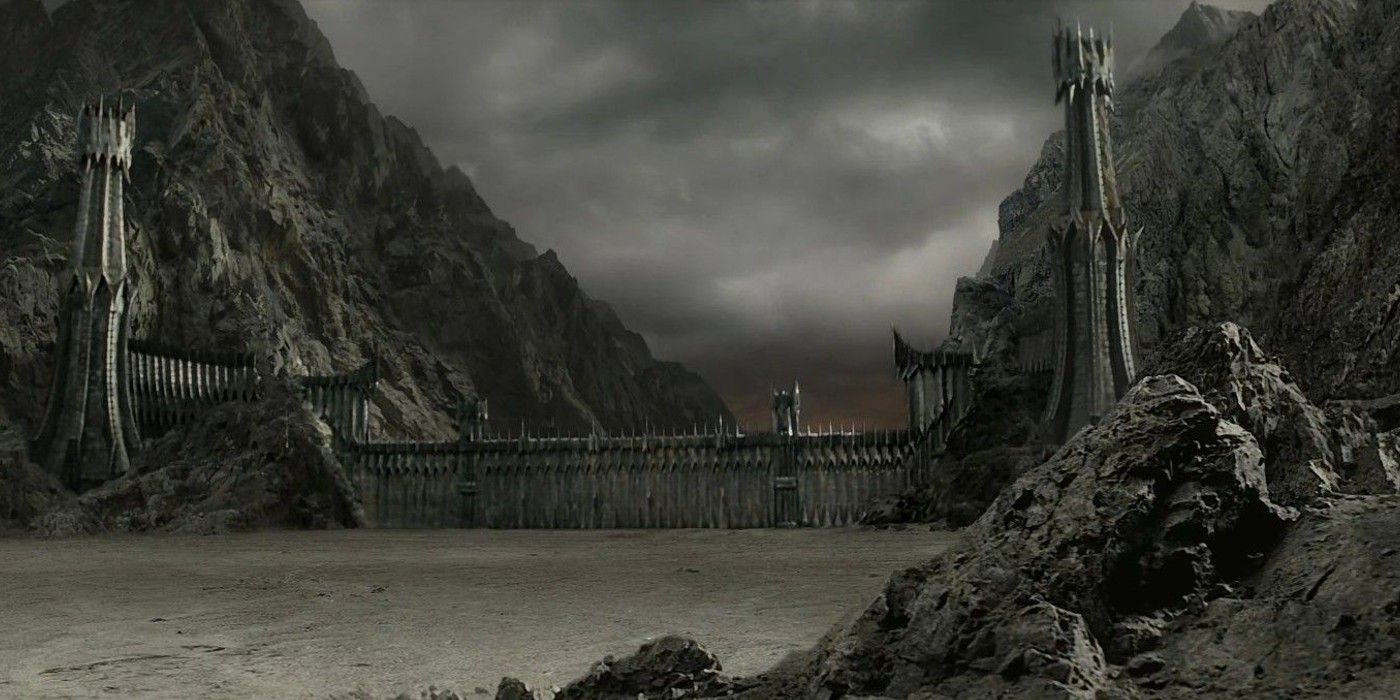
While I’m glad that Jackson cut the scene in which Aragorn beheaded the Mouth of Sauron, I’m bummed that the villainous character had to be removed from Return of the King entirely. Sure, the Mouth of Sauron wasn’t a massive character in Tolkien’s works, but he was, in a sense, the closest readers got to the Dark Lord. This dark emissary spoke with Sauron’s mouth, bringing his black words and evil will to life. During this scene in the book, we got a peak into Sauron’s true plan for Middle-earth and gained a better understanding of the deceptive lengths he would go to create what he considered a better world.
For the most part, the scene including the Mouth of Sauron in Jackson’s Lord of the Rings: The Return of the King was true to Tolkien’s version. The villain brought Frodo’s Mithril shirt to diminish Gandalf and Aragorn’s spirit and offered the terms of Gondor’s surrender with lies of mercy and a better world. Unfortunately, it had to end with the proud king of Men committing murder, spoiling the entire thing. Ultimately, Jackson’s movie trilogy was better off without it, but seeing a less dramatized version of the scene on screen would have been nice.

